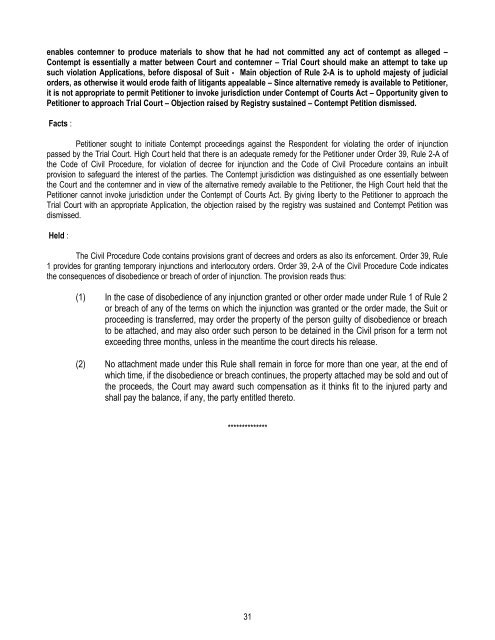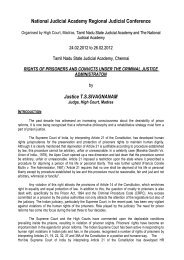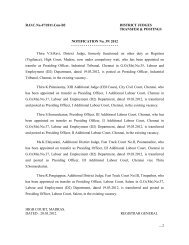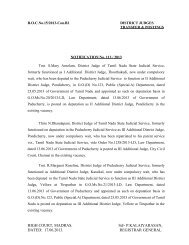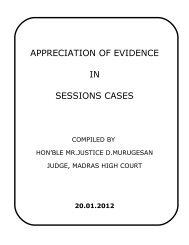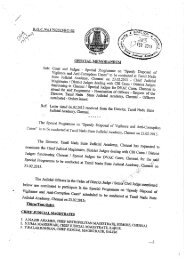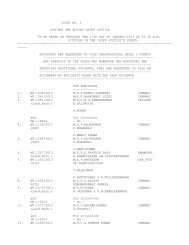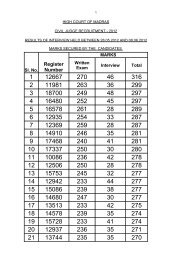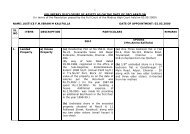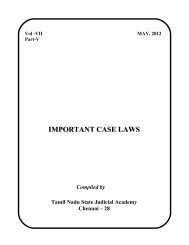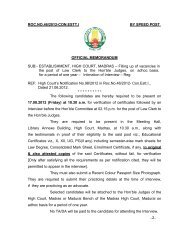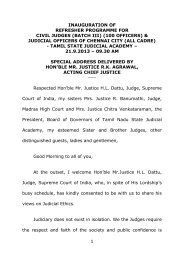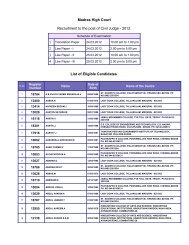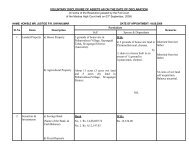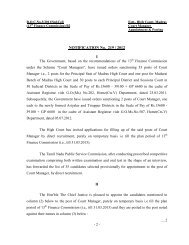IMPORTANT CASE LAWS - Madras High Court
IMPORTANT CASE LAWS - Madras High Court
IMPORTANT CASE LAWS - Madras High Court
You also want an ePaper? Increase the reach of your titles
YUMPU automatically turns print PDFs into web optimized ePapers that Google loves.
enables contemner to produce materials to show that he had not committed any act of contempt as alleged –<br />
Contempt is essentially a matter between <strong>Court</strong> and contemner – Trial <strong>Court</strong> should make an attempt to take up<br />
such violation Applications, before disposal of Suit - Main objection of Rule 2-A is to uphold majesty of judicial<br />
orders, as otherwise it would erode faith of litigants appealable – Since alternative remedy is available to Petitioner,<br />
it is not appropriate to permit Petitioner to invoke jurisdiction under Contempt of <strong>Court</strong>s Act – Opportunity given to<br />
Petitioner to approach Trial <strong>Court</strong> – Objection raised by Registry sustained – Contempt Petition dismissed.<br />
Facts :<br />
Petitioner sought to initiate Contempt proceedings against the Respondent for violating the order of injunction<br />
passed by the Trial <strong>Court</strong>. <strong>High</strong> <strong>Court</strong> held that there is an adequate remedy for the Petitioner under Order 39, Rule 2-A of<br />
the Code of Civil Procedure, for violation of decree for injunction and the Code of Civil Procedure contains an inbuilt<br />
provision to safeguard the interest of the parties. The Contempt jurisdiction was distinguished as one essentially between<br />
the <strong>Court</strong> and the contemner and in view of the alternative remedy available to the Petitioner, the <strong>High</strong> <strong>Court</strong> held that the<br />
Petitioner cannot invoke jurisdiction under the Contempt of <strong>Court</strong>s Act. By giving liberty to the Petitioner to approach the<br />
Trial <strong>Court</strong> with an appropriate Application, the objection raised by the registry was sustained and Contempt Petition was<br />
dismissed.<br />
Held :<br />
The Civil Procedure Code contains provisions grant of decrees and orders as also its enforcement. Order 39, Rule<br />
1 provides for granting temporary injunctions and interlocutory orders. Order 39, 2-A of the Civil Procedure Code indicates<br />
the consequences of disobedience or breach of order of injunction. The provision reads thus:<br />
(1) In the case of disobedience of any injunction granted or other order made under Rule 1 of Rule 2<br />
or breach of any of the terms on which the injunction was granted or the order made, the Suit or<br />
proceeding is transferred, may order the property of the person guilty of disobedience or breach<br />
to be attached, and may also order such person to be detained in the Civil prison for a term not<br />
exceeding three months, unless in the meantime the court directs his release.<br />
(2) No attachment made under this Rule shall remain in force for more than one year, at the end of<br />
which time, if the disobedience or breach continues, the property attached may be sold and out of<br />
the proceeds, the <strong>Court</strong> may award such compensation as it thinks fit to the injured party and<br />
shall pay the balance, if any, the party entitled thereto.<br />
**************<br />
31


